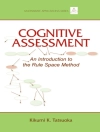The study of emotion tends to breach traditional academic boundaries and binary lingustics. It requires multi-modal perspectives and the suspension of dualistic conventions to appreciate its complexity.
This book analyses historical, philosophical, psychological, biological, sociological, post-structural, and technological perspectives of emotion that it argues are important for a viable social psychology of emotion. It begins with early ancient philosophical conceptualisations of pathos and ends with analytical discussions of the transmission of affect which permeate the digital revolution.
It is essential reading for upper level students and researchers of emotion in psychology, sociology, psychosocial studies and across the social sciences.
Table des matières
Chapter 1: Two Ancient Theories of Emotion: Plato and Aristotle
Chapter 2: Hellenistic and Medieval Theologies of Emotion
Chapter 3: Enlightenment Philosophies of Emotion
Chapter 4: The Role of Emotion in the Development of Social Psychology as a Discipline
Chapter 5: Group Psychology and Emotion
Chapter 6: Biological Understandings of Emotion
Chapter 7: Sociological Understandings of Emotion
Chapter 8: Emotion Talk: Theories and Analysis
Chapter 9: Affect Theory: Post-Structuralist Accounts
Chapter 10: Digital Emotion
Conclusion












